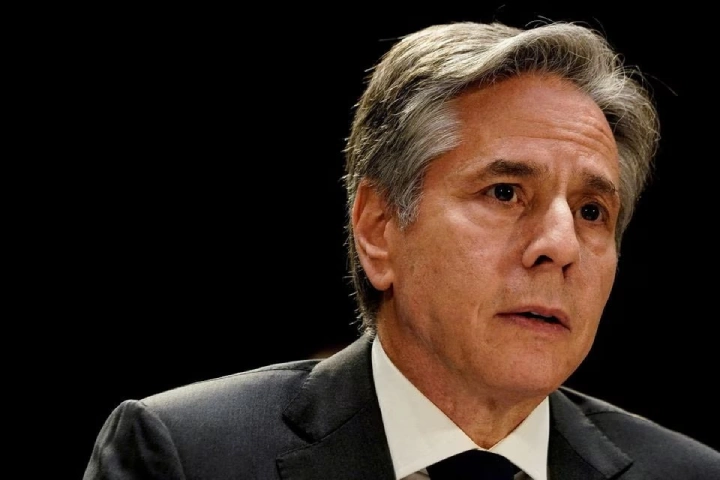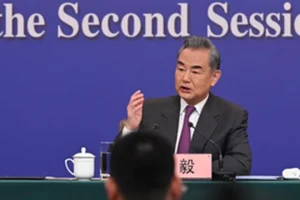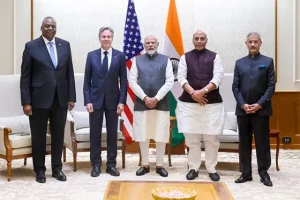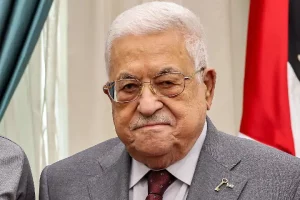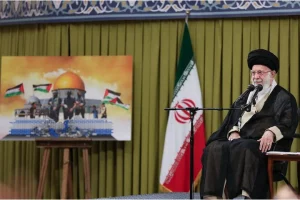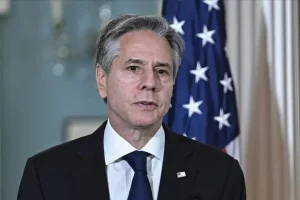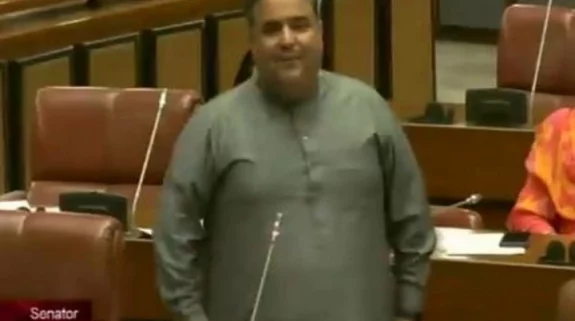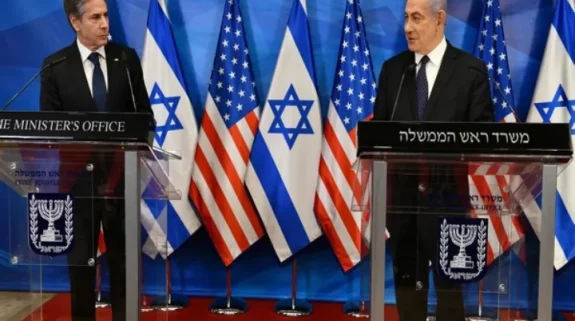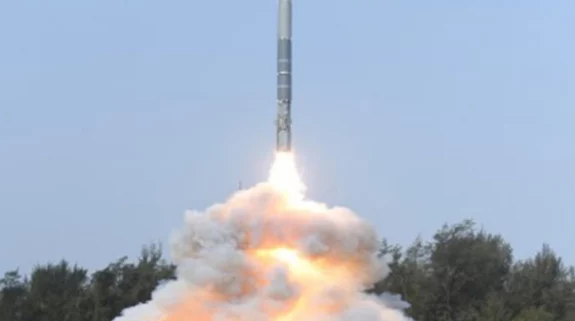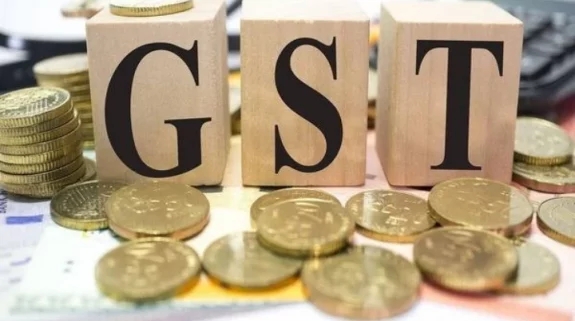Two related developments, US Secretary of State Antony Blinken’s visit to China this weekend and the release of Germany’s first strategy paper have one common thread—the two allies are ready to engage and manage their relations with China, fully aware that Beijing may not be inclined to play by western rules.
Ahead of his visit Blinken has made it plain that the US wants to avoid an all-out confrontation. On the contrary, he wants to talk to China– to define a new normal through a serial dialogue, which he will initiate.
Blinken’s visit is the progeny of the interaction between the US President Joe Biden and Chinese President Xi Jinping last November on the sidelines of the G-20 summit in Jakarta.
It is evident that the US Secretary of State is looking for a diplomatic opening with China, rooted in hard boiled pragmatism.
Two senior US officials have conveyed the US mood—of reviving high-level dialogue with China, notwithstanding Beijing’s belligerence ranging from the South China Sea to Latin America, with military tensions with India along the Line of Actual Control (LAC), thrown in-between.
“We are clear-eyed about the People’s Republic of China (PRC). We know efforts to shape or reform China over several decades have failed. And we expect China to be around and to be a major player on the world stage for the rest of our lifetimes,” said Kurt Campbell, US coordinator for Indo-Pacific Affairs during a media interaction ahead of Blinken’s visit.
China Warns US Against ‘Strategic Misjudgment’ as Blinken Heads to Beijing https://t.co/hCZUjBNoai pic.twitter.com/bnJqJ4XIYc
— Sputnik (@SputnikInt) June 17, 2023
Campbell said that the US would pursue a two-track approach—of pushing back at China’s “provocative steps–– from the Taiwan Strait to Cuba.”
Yet, Washington would also look at opportunities to work together with China “where and when our interests align.”
“We are in competition with China, but we do not seek conflict, confrontation, or a new Cold War. We are for managing the competition responsibly,” the US official said.
But to manage the complex relationship infused with intense competition “requires intense diplomacy if we’re going to manage tensions,” he observed. “That is the only way to clear up misperceptions, to signal, to communicate, and to work together where and when our interests align.”
Campbell insisted that Washington was talking to Beijing not out of weakness or compulsion but from a position of strength. He cited the formation of the Australia-UK-US (AUKUS) grouping where Canberra would be armed with nuclear submarines, in substantiation. He also signalled that China would be facing the heat on the geo-economic plain following huge US investments in semiconductors and graduated disruption of China destined supply chains using American computer chips. Yet, the Americans were de-risking their economic relationship by forging alternatives, but not decoupling from China.
State Dept spox on Blinken’s China visit: “We are very determined to de-risk…. We’re not about decoupling. We’re not about containing China. We’re not about trying to hold it back economically.”https://t.co/aYAN4npstS
— Derek J. Grossman (@DerekJGrossman) June 16, 2023
In tune with the US, Germany is first strategy paper released on Wednesday called China a “partner, competitor and systemic rival” all rolled into one. “China is trying in various ways to remould the existing rules-based international order, is asserting a regionally dominant position with ever more vigour, acting time and again counter to our interests and values,” the strategy paper said as reported by AFP.
The paper slammed China for putting regional stability and international security “under increasing pressure” and for disregarding human rights.
But it acknowledged that the Asian giant “remains a partner without whom many global challenges and crises cannot be resolved”.
“#China is trying in various ways to remould the existing rules-based international order, is asserting a regionally dominant position with ever more vigour, acting time and again counter to our interests and values,” the strategy paper said.https://t.co/M8PwpJOr52
— Economic Times (@EconomicTimes) June 14, 2023
“That is why we must grasp the options and opportunities for cooperation in these fields in particular,” the paper said, echoing Washington’s perception.
Are there any takeaways for India from the Western approach? Perhaps there are three.
First, avoid all-out conflict with China. This is an approach that India has pursued so far and needs to prolong till a new normal is achieved.
Second, expand negotiations from a position of strength, as the west has arguably achieved through the formation of AUKUS, as nailed by Campbell. That would come by rapidly building military capability by imbibing cutting edge technology agnostically from wherever it comes—from the Americans or French, well, and good, without closing the door on Russia. Simultaneously nuclear deterrent must strengthen both in terms of warheads and delivery systems, without getting into a nuclear arms race. The strategic autonomy mantra must be omnipresent here to provide the ideological foundations for pragmatically dealing with both sides, fixated in core national interest.
Third, in tune with the rise of military and economic heft (going well past the 5 trillion-dollar economy goal post for example), India needs to plan for a pragmatic engagement with China by weaponising diplomacy to achieve core national goals.
Also Read:PM Modi’s visit reveals new realism in US policy towards India






